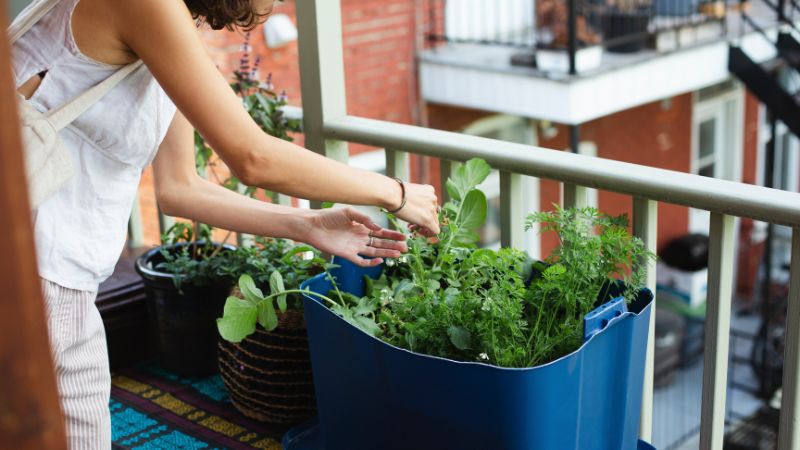Urban living often comes with the challenge of limited space, but that doesn’t mean you have to give up on having a garden. A small balcony can be transformed into a lush, green retreat with some thoughtful planning and creativity. Here are eight essential tips to help you get started on your balcony gardening journey.
Planning Your Balcony Garden
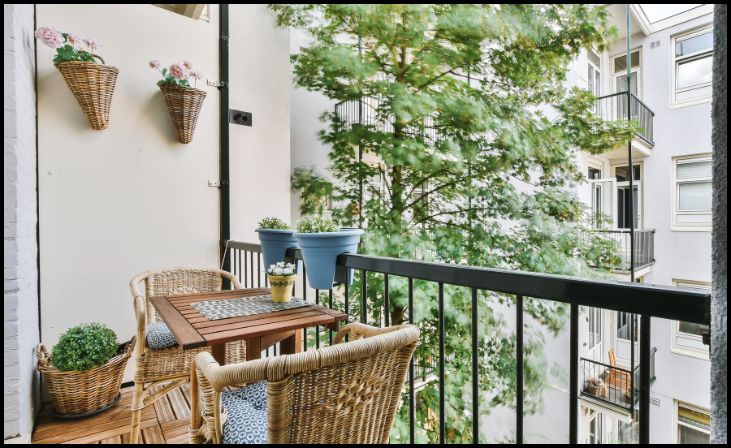
Before you buy any plants or containers, take a moment to plan out your space. Measure your balcony to understand how much room you have to work with. Think about where you’ll place your BBQ, table, and chairs, and how much space you want to dedicate to your garden. Having a clear layout in mind will help you make the most of your balcony.
Choosing the Right Plants
Selecting the right plants is crucial for a successful balcony garden. Some plants thrive in small spaces and are perfect for balconies. Consider plants like herbs (basil, mint, parsley), compact vegetables (cherry tomatoes, lettuce), and flowering plants (petunias, marigolds). Take into account the amount of sunlight your balcony receives and the wind conditions, as these will influence your plant choices.
Container Selection
Don’t be tempted to fill your balcony with numerous tiny containers. Instead, opt for larger pots that can accommodate more soil and retain moisture better. This will reduce the frequency of watering and provide more room for roots to grow. Choose containers with good drainage to prevent waterlogging.
Year-Round Gardening
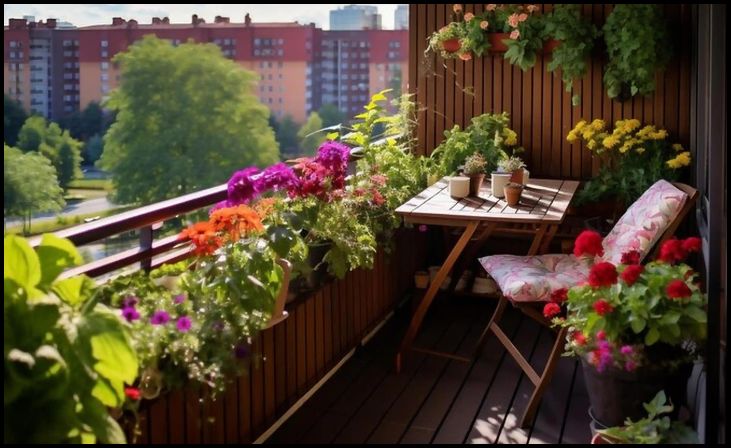
Why limit your gardening to just the warmer months? Plan a garden that you can enjoy all year round. Consider evergreen plants, winter vegetables like kale and spinach, and seasonal flowers that will keep your balcony looking vibrant through all seasons. With a bit of planning, your balcony can be a green haven even in winter.
Vertical Gardening
Vertical gardening is a fantastic way to maximize space on a small balcony. Use wall-mounted planters, hanging pots, and trellises to grow your plants upwards. This not only saves floor space but also creates a stunning visual effect. Climbers like ivy, beans, and jasmine are perfect for vertical gardening.
Light and Wind Considerations
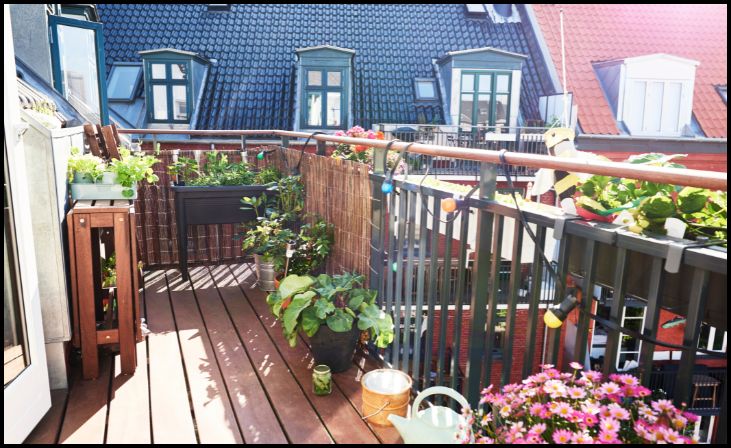
Understanding your balcony’s light and wind conditions is key to choosing the right plants. Observe how much sunlight your balcony gets throughout the day and choose plants accordingly. For windy balconies, consider using windbreaks like bamboo screens or placing taller plants in front of more delicate ones to protect them.
Pest Control Strategies
Even balcony gardens can attract pests. Rotate your edible plants regularly to prevent pests from settling in. Use natural pest deterrents like neem oil, garlic spray, or companion planting to keep your garden healthy. Marigolds, for example, can help repel aphids and other insects.
Mixing Materials and Forms
Don’t be afraid to get creative with your garden’s appearance. Mix different types of plants and use various containers and materials to add interest and texture. Combine herbs with flowers, use wooden crates alongside ceramic pots, and play with different heights and colors to create a dynamic and visually appealing garden.
Watering and Maintenance Tips
Efficient watering is crucial for balcony gardens. Consider using self-watering pots or drip irrigation systems to ensure your plants get the right amount of water without overdoing it. Regularly check for dead leaves and prune your plants to keep them healthy and encourage growth.
Decorative Elements
Add some decorative touches to make your balcony garden even more inviting. Fairy lights, colorful plant labels, decorative stones, and small garden ornaments can enhance the overall look and feel of your space. These elements can transform your balcony into a cozy and stylish outdoor retreat.
Safety Tips
Ensure your balcony garden is safe, especially if you’re placing heavy containers. Use sturdy, secure shelves and brackets to hold your plants. Make sure that heavy pots are placed on the ground and not on railings to avoid accidents. Also, be mindful of any local regulations regarding balcony use.
Eco-Friendly Practices
Embrace sustainable gardening practices to make your balcony garden eco-friendly. Use organic fertilizers and potting soil to avoid chemicals that can harm the environment. Collect rainwater for watering your plants and choose native plants that require less water and care.
Engaging with the Community
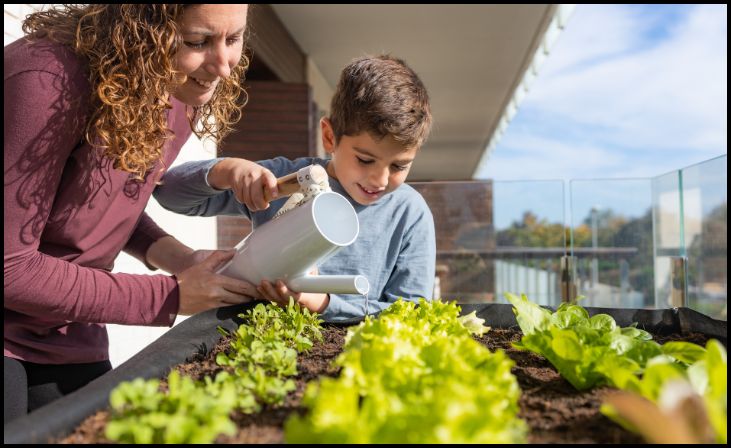
Join local gardening groups or online forums to connect with other gardening enthusiasts. Sharing tips, exchanging plants, and learning from others can enrich your gardening experience. You might even inspire your neighbors to start their own balcony gardens.

